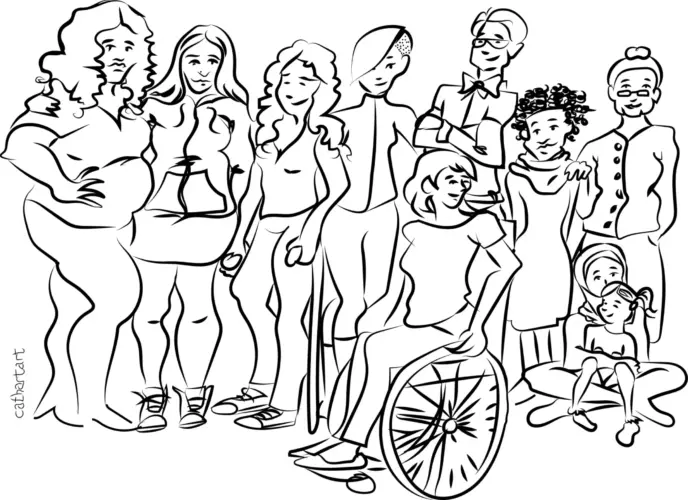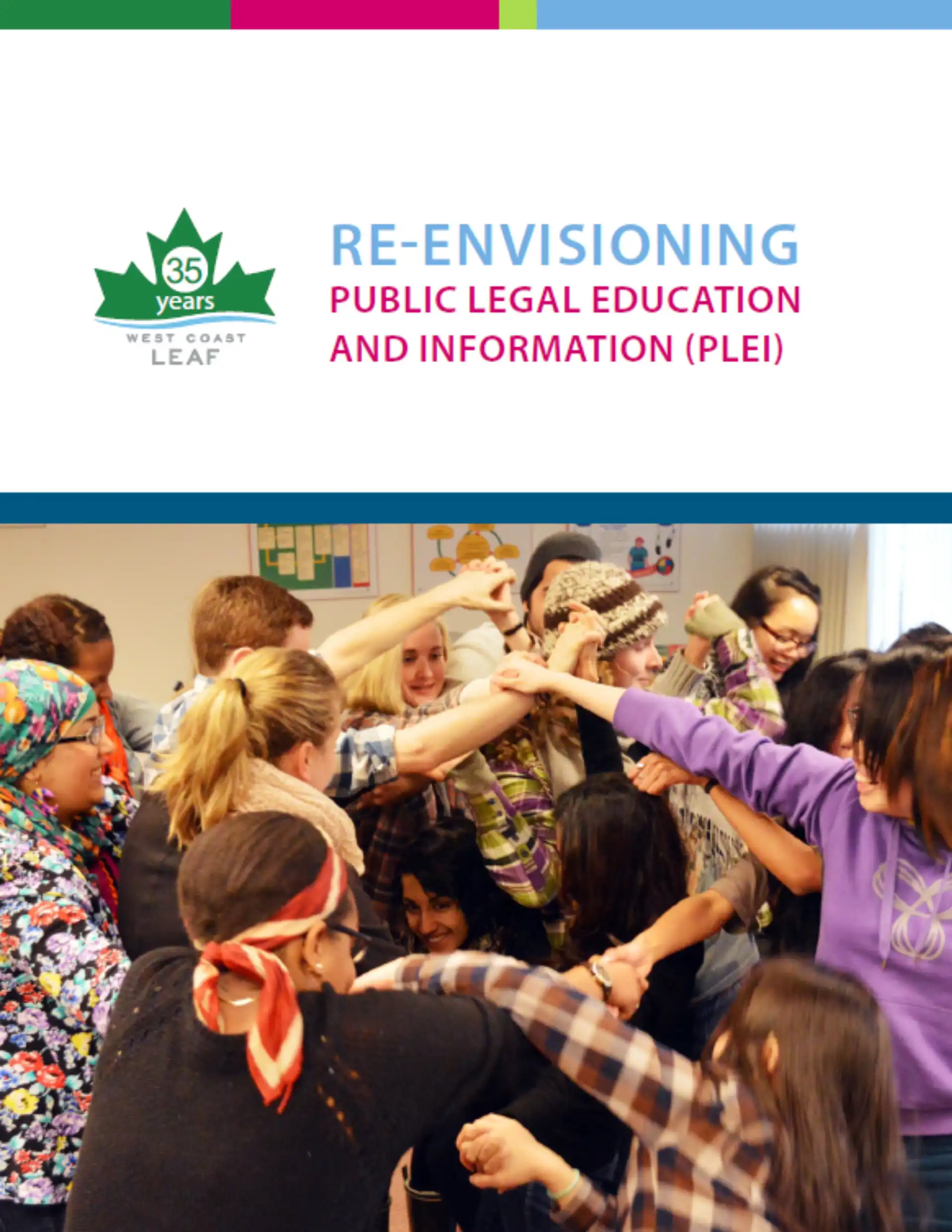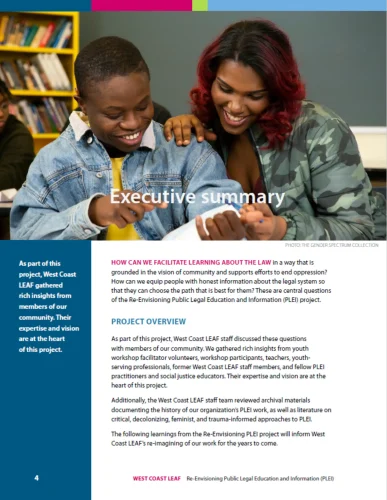
Responding to COVID-19: Community in Action
During the COVID-19 crisis, our commitment to advocating for gender equity and justice is as strong as ever. The pandemic has dramatically highlighted the deep inequalities in our social, economic, and justice systems. As part of our efforts to transform these systems, we are amplifying calls to action from other organizations and community groups. If you’re looking for ways to contribute during the pandemic, or just trying to stay up to date with what’s happening in our communities, here are some calls to action for you to consider.
- The Canadian Association of Midwives and National Aboriginal Council of Midwives has written an open letter advocating for a reproductive justice framework during the COVID-19 pandemic, and at all times, be applied to all perinatal care services. Share widely with your network!
- The HIV Justice Worldwide Steering Committee has an open letter urging leadership to recognize COVID-19 as a public health issue, not a criminal issue. Share widely!
- The BC/Yukon Association of Drug War Survivors has four calls to action to urge the BC government to equitably protect the health of vulnerable people.
- Kairos Canada is asking people to email their Member of Parliament and urge the government to give all migrants in Canada immediate residence status with a pathway to permanent residency.
- Butterfly: Asian and Migrant Sex Workers Support Network: Asian and migrant sex workers have been left behind in COVID-19 government responses. Add your name to Butterfly’s petition for Asian and migrant sex workers
- Just Recovery for All is a national movement saying that we can’t go back to business-as-usual after the COVID-19 pandemic. Be part of building a movement for a #JustRecoveryforAll that puts people first. Help spread the word!
- Include Me is asking people to send a letter to the government of Canada. Many people with disabilities are still in need of financial aid. Send your letter asking the Government of Canada to work with the provincial and territorial governments to determine how to provide needed, financial assistance.
- PEERS Victoria is looking for people to join their letter writing campaign for economic justice for sex workers in COVID-19 response plans.
- Homes Not Hate is asking people to join their letter writing squad to denormalize public poor-bashing and anti-homeless hate.
- Poverty Kills is asking people in Lkwungen Territory, (Victoria), be part of the redistribution of inequitably distributed resources, including access to money, supplies, information, and time/skills.
- Canadian Women’s Foundation has written an open letter to the federal government asking for an intersectional feminist lens to the COVID-19 pandemic, to the emergency measures, and to the recovery.
- Migrant Workers Centre is calling on the government to create a permanent residency program for all migrant workers who provide essential services and work in jobs where there are labour shortages.
- The BC Poverty Reduction Coalition is urging people to email the Premier and Minister Simpson to take urgent action targeting low-income and homeless BC residents.
- The BC Poverty Reduction Coalition also has an open letter calling for immediate action to provide housing for people who are homeless or inadequately housed in BC, and to reduce the threat posed by COVID-19.
- Groups across the lower mainland are calling for accountability from the Greater Vancouver Food Bank for their practices that have created unnecessary barriers to receiving food supports. You can sign on to the accountability letter to the GVFB.
- The Carnegie Community Action Project is asking for supporters to sign their petition to prioritize a COVID-19 protection plan for the homeless.
- The Union of BC Indian Chiefs has an open letter calling for an inter-jurisdiction approach to homelessness, with a focus on the densely populated Downtown Eastside of Vancouver.
- Migrant Rights Network has a petition calling for supports for migrant students.
- Migrant Rights Network also has a petition asking that no one be left behind in the response to COVID-19, regardless of immigration status.
- The Women’s National Housing & Homelessness Network has a call for all levels of government to implement a gender-informed response to COVID-19 that recognizes the women, girls, and gender-diverse people who are homeless, vulnerable, or facing violence.
- Women Transforming Cities has written an open letter to Vancouver’s City Council to ask that efforts continue to apply a gendered intersectional framework for the benefit of all.
- leadnow.ca has a petition to close industrial camps, also called man camps, which increase the risk of COVID-19 and gender-based violence, particularly for Indigenous communities.
- Canadian Women’s Foundation is spreading the word about a signal for help that can be used on video calls when someone is unsafe. They are also asking people to sign this letter to let your representative know it’s time to prioritize gender-based violence prevention for young people, informed by and responsive to a comprehensive National Action Plan on Gender-Based Violence.
- YWCA Canada is calling for a feminist approach to COVID-19.
- Toronto Harm Reduction Alliance is asking people to email the policy -makers and physicians in charge of healthcare that we need safe drug supply programs. Currently, Health Canada and other regulatory health bodies have openly stated their support for a safer supply prescribing program. Add your voice here.
- Criminalization and Punishment Education Project is asking supporters to your voice to demand that the Ministry of Community Safety and Correctional Services provide adequate personal protective equipment, sanitation supplies, and support for prisoners and correctional staff during the COVID-19 pandemic.
- Vancouver Prison Justice Groups is organizing weekly solidarity car demonstration for prisoners on Sundays. This caravan for justice invites all folks concerned about the health, safety, and dignity of prisoners to join us in a public demonstrations. Occurring on Sunday afternoons, from 12pm to 2pm. Come honk your horns, make noise, wave signs, and show people inside that they are not forgotten. Follow their Facebook for updates.
- Canadian HIV/AIDS Legal Network is asking people to share their open letter on calling for the decriminalization of simple drug possession immediately.
- BCCLA is calling for a Coroner’s Inquest into the death of a person who was incarcerated at a Federal institution in Mission.
- Demand Prisons Change is asking people to boost the five demands for decarceration by emailing or calling your representatives and demand action now.
- The Toronto Prisoners’ Rights Project has released an open letter you can sign on, to highlighting the unsanitary conditions, close quarters, and frequent physical contact in Canadian prisons, as well as the underlying chronic health conditions of many detained people
- Prisoners’ Legal Services in BC has put together an open letter from concerned health-care providers calling on federal, provincial, and territorial governments to depopulate Canada’s prisons and jails to protect our communities from COVID-19. If you are a health-care provider, please consider adding your name to PLS’s open letter.
- The Prisoners’ Rights Project and Criminalization and Punishment Education Project have organized weekly “email zaps” focusing on the human rights of prisoners during the COVID-19 pandemic.
- The Union of BC Indian Chiefs has an open letter calling for government to take action on the life-threatening over-incarceration of Indigenous people during the COVID-19 crisis.
- Take Action for $10aDay in BC’s Recovery. Use their email tool below to send an email to decision makers asking them to make sure that in British Columbia child care leads the pandemic recovery.
- Fostering Change is asking for supporters to sign their petition to make sure no youth falls through service gaps in this pandemic.
- Child Care Now is calling for support for their plan to save child care from COVID-19.
COVID-19 activism in the spotlight
July 24 – A feminist recovery for BC
The COVID-19 pandemic, like many crises before it, has exacerbated existing gender inequalities. Women and gender non-conforming people are bearing the brunt of the economic and social burdens of the pandemic, while also leading the frontline health and service response.
Women and gender non-conforming people are over-represented in sectors most impacted by the pandemic including hospitality, retail, and service sectors as well as in low-wage, part-time, and informal employment. They have not only been the ones most likely to lose their sources of income during the pandemic, they are also the ones least likely to benefit from emergency financial supports because eligibility criteria for government programs do not factor in these workers’ lived experiences and particular needs.
As the BC government assesses where to allocate provincial resources during this time of great need, it must ensure its restart plan is feminist in process and substance. We have called on the government to ensure the following elements are integrated at all stages of the recovery process:
- Apply a gender-based analysis plus (GBA+) to all public policy decisions and recovery-related spending. The GBA+ must be undertaken with feedback from diverse communities, accessible to those who experience intersecting forms of marginalization, and transparent.
- Ensure policies and spending decisions consider the province’s commitment to the full realization of the rights enshrined in the United Nations Declaration on the Rights of Indigenous Peoples including the right to self-governance and free prior and informed consent. It is particularly important that Indigenous women and gender non-conforming people play a leadership role in the development of a recovery plan.
- Create a Gender Advisory Council that provides input on the recovery process, policies and spending. Representation on the Council must be intersectional and in particular include the participation of trans, Two Spirit, and gender non-binary people, Black, Indigenous and people of colour, people with immigrant, refugee and undocumented status, sex trade workers, people with disabilities, people experiencing homelessness, people using substances, and those residing in remote parts of the province.
- Collect data disaggregated by age, sex, gender (including gender identity and gender expression), pre-existing health conditions, race, Indigeneity, immigration status, geography and income. It is particularly important to collect data that reflects the experiences of trans, Two Spirit and gender non-binary people, as there is currently very little data gathered both provincially and federally on the effect government polices have on these communities. In fact, our research indicates that there is virtually no government data available on the experiences of trans, Two Spirit and gender non-binary people including in areas such as wages, housing, use of public services, overdose related deaths, and experiences in the prison system.
June 9 – Challenging gender-based violence
The COVID-19 crisis has highlighted the prevalence of gender-based violence and the shortfalls in the response to gender-based violence in BC.
During the COVID-19 pandemic, public health officials have directed us to stay home whenever possible. However, for many people, home is not a safe place. Those who experience family violence are at heightened risk during this pandemic because they may be isolated with an abuser and cut off from other social support systems. Many survivors may have also experienced a loss of income, which means they have fewer resources to secure safe housing and shelter.
Survivors are also struggling to access support services as community-based sexual assault programs are struggling to meet the increased demand with the same levels of insufficient funding they were receiving before the pandemic hit. For example, Battered Women’s Support Services (BWSS) in Vancouver has reported a 300% increase in calls to their support line since the pandemic began. Native Women’s Association of Canada found 1 in 5 of the women they surveyed had been a victim of violence over the past three months. Shelters across Canada have reported a spike in people seeking safe housing and limited resources to address the increased demand.
It is worth noting that Black and Indigenous women experience disproportionately high levels of violence, and have been leading the way in anti-violence organizing.
May 8 – Supporting sex workers
As the COVID-19 pandemic continues, the needs of many communities who experience systemic marginalization are significant. This is certainly true for sex workers, who are disproportionately affected by the pandemic and who face heightened risks during this time.
Many sex workers have experienced an abrupt loss of income, yet they are unable to access government financial supports and income replacement like the CERB and provincial income supports. Those who are able to work—or who have no choice but to work—report limitations in their ability to negotiate wages, reduced autonomy and agency and, as a result, increased violence, as well. Trans and racialized women make up a large percentage of people engaging in sex work and face further stigma and harm during this public health crisis.
Closures and changes in services and programs mean that many sex workers are unable to access housing and other amenities they need to keep themselves and their families safe and healthy. The ability to socially distance and self-isolate is not accessible to all groups equally.
Frontline community organizations that provide support to sex workers have called on the government to provide cash-based support and make efforts to reach those who may not have identification, employment records, or bank accounts but are in critical need of financial support.
Sex workers cannot be left out of government responses to this pandemic and need immediate supports.
April 25 – Decarceration
The ability to quarantine is a privilege many people do not have. This is especially true for those who are caught in the prison system during this pandemic.
Many people in Canadian prisons live in close proximity to others and often have pre-existing health conditions. Despite the heightened risk of contracting COVID-19 and dying from this disease, people in prison have mostly been left out of the provincial and federal public health responses.
As anticipated by grassroots groups, there have now been multiple reported COVID-19 outbreaks in prisons across the country. These community advocates continue to call on the governments to take immediate action to protect people in prisons. Protections should include the depopulation of prisons and the release of prisoners wherever possible. For those who cannot be released, activists have called for basic protections, including free soap, personal protective equipment, and cleaning supplies.
The lack of government action is particularly concerning given the close links between marginalization and incarceration. Not only are Indigenous women vastly overrepresented in prison populations, but racialized, trans, and gender non-binary people are far more likely to experience harm from poor prison conditions. These harms include violence, harassment, and a lack of access to health care.


